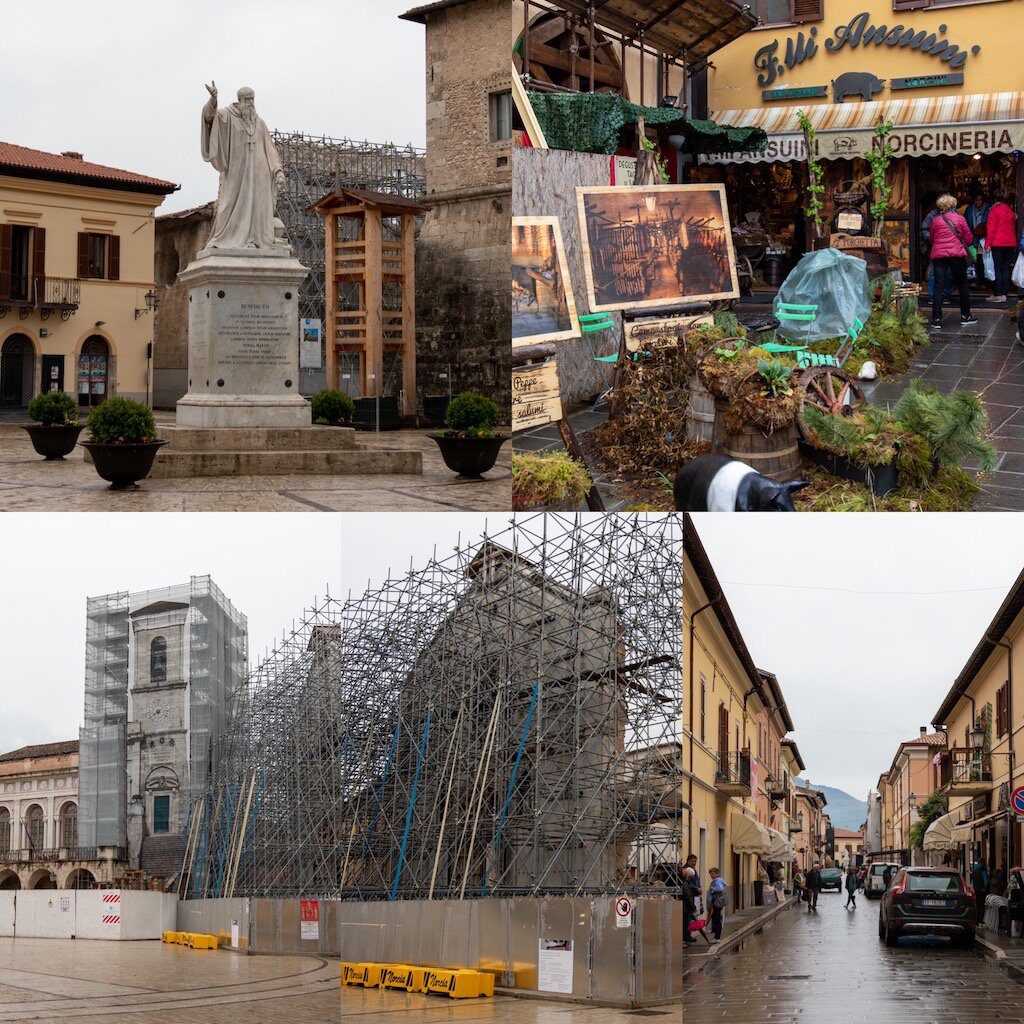Visit Date: May 4, 2019, 11:00 a.m.
From Ascoli Piceno in Marche, where we stayed the night before, we came two hours to Norcia, a beautiful village in Umbria.
Norcia is famous for the birthplace of St. Benedictus of Nursia, the founder of the Benedictine monasteries that you hear so much about when we travel around Europe, and here is also known for its high-quality black truffles and salami, one of Italy’s most famous products. Due to the blessed ingredients, there were many restaurants in the village, some of which have Michelin stars. Therefore, it is a place visited by many tourists, although it is a small country village.
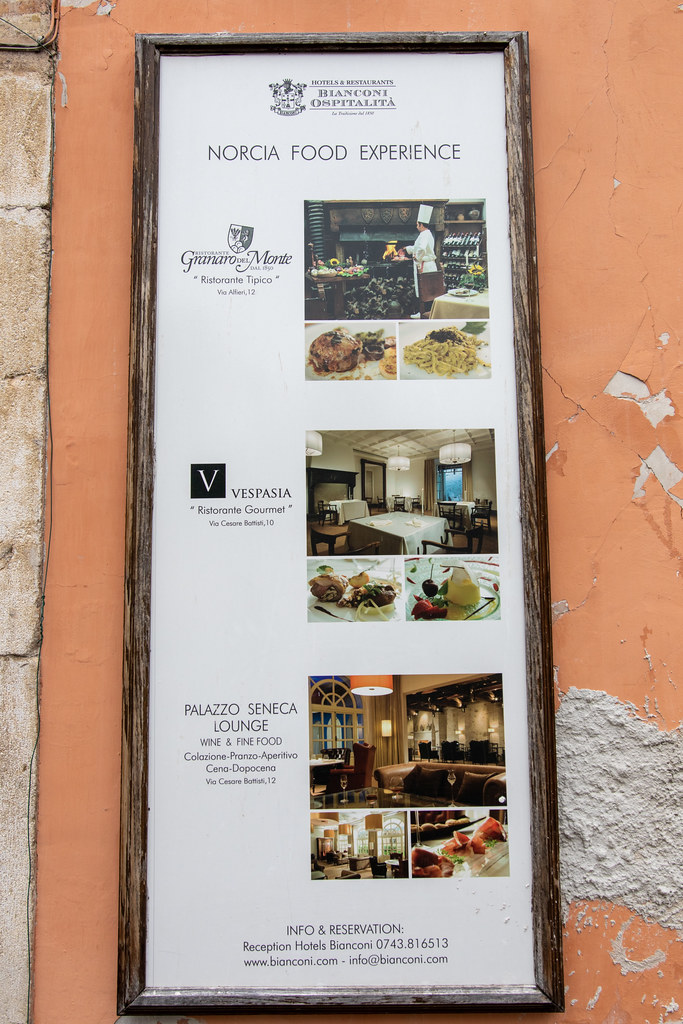
There were many parking spaces all around the village, but they were crowded with a lot of tourists.
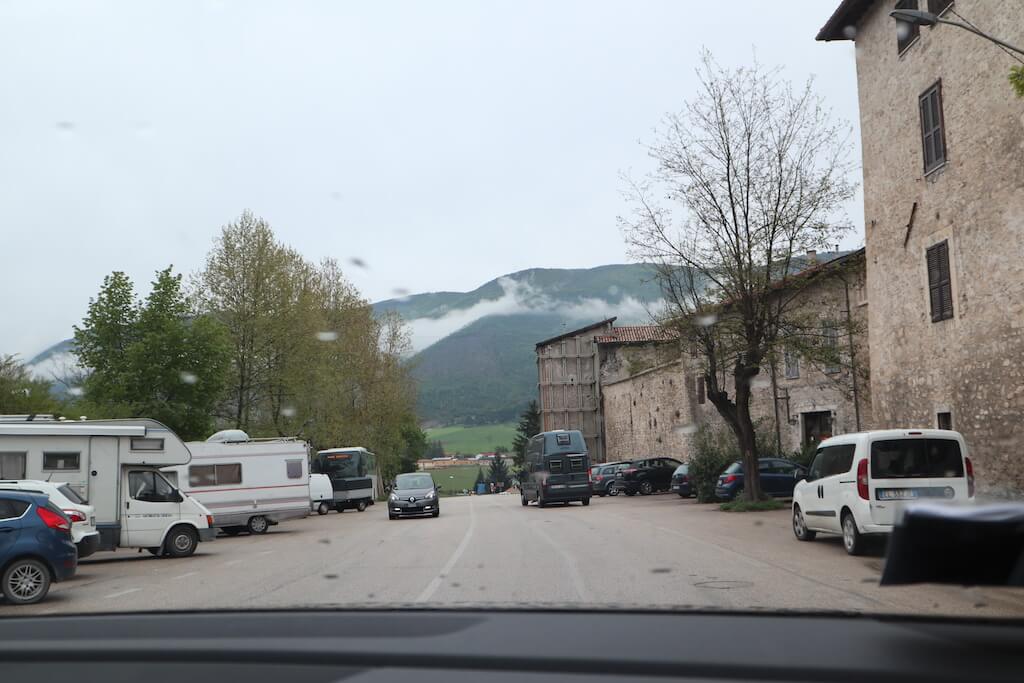

Now, as I mentioned in my last post, Norcia is the closest administrative district to the epicenter of the “Central Italy Earthquake” that occurred in August 2016. This area has always been prone to earthquakes and has been hit by several major earthquakes in the past 30 years. But in recent years earthquake countermeasures have been progressing and there were no human casualties in the earthquake three years ago. So I was relieved to know such information on the internet.
However, I was astonished to see the central square of the village, San Benedetto Square. The church of San Benedetto, the absolute symbol of the village, was half destroyed or almost completely destroyed. It was a very sad sight that left me speechless.

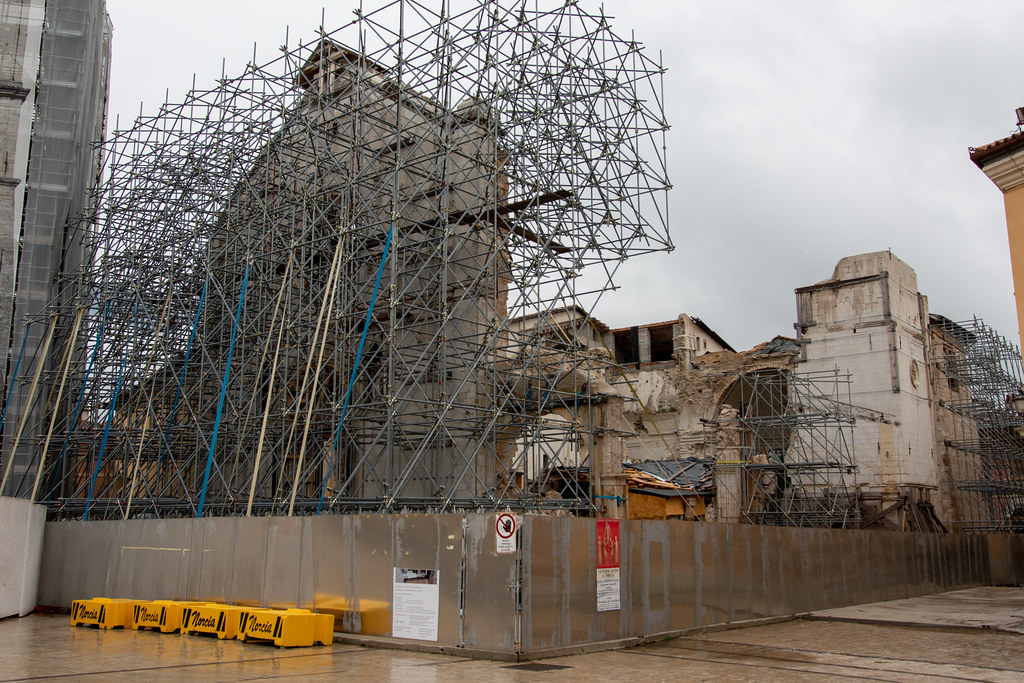
In the square where the church of San Benedetto is, there was a town hall with a beautiful clock tower, but it have also collapsed.

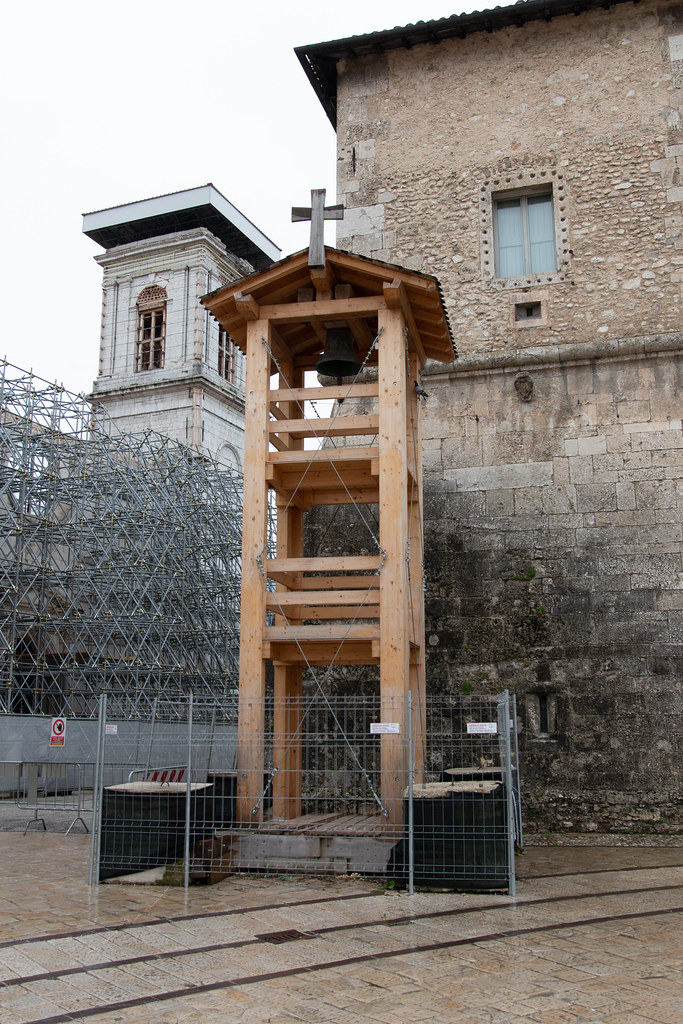

It seemed that the reconstruction was progressing slowly. In contrast, the square itself was very clean and the statue of the St. Benedictus in the center was beautiful and magnificent.

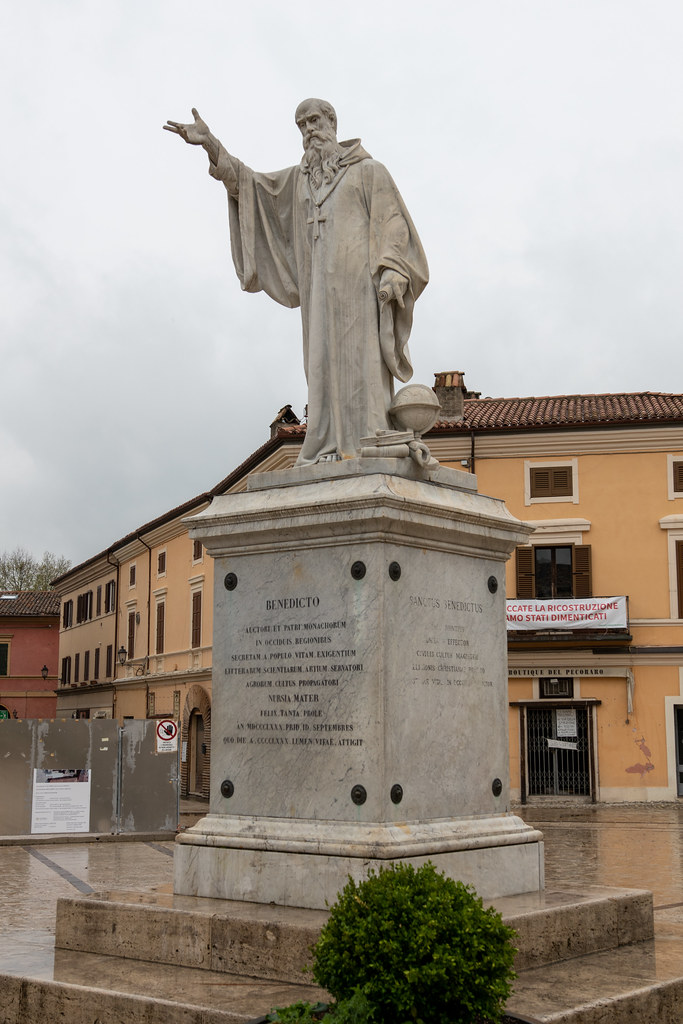
Some other gates at the entrance to the village were also badly damaged.
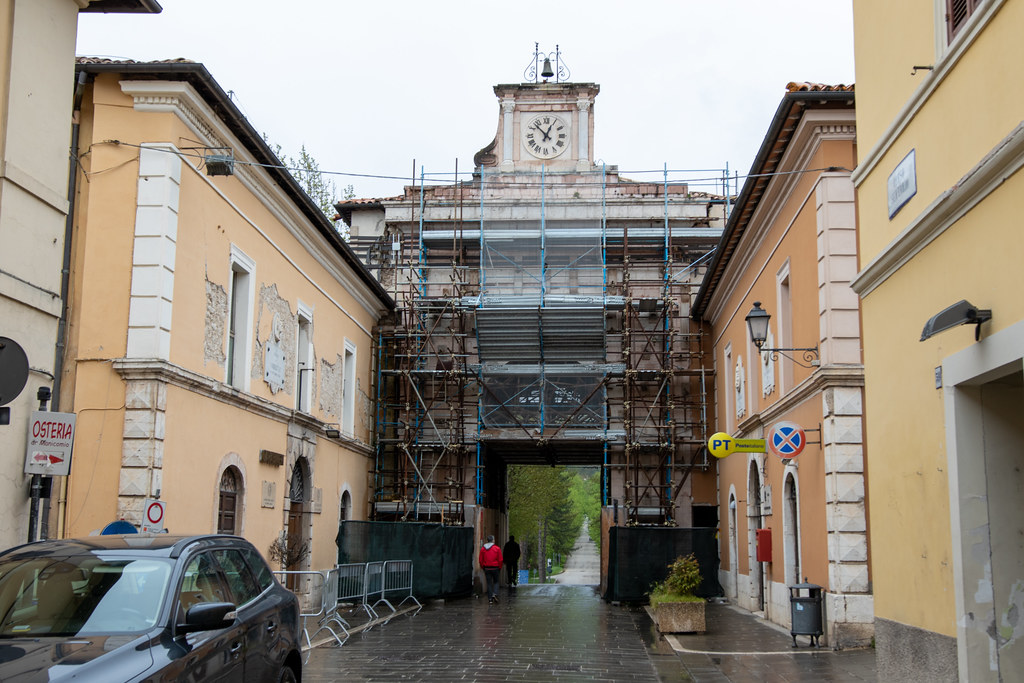
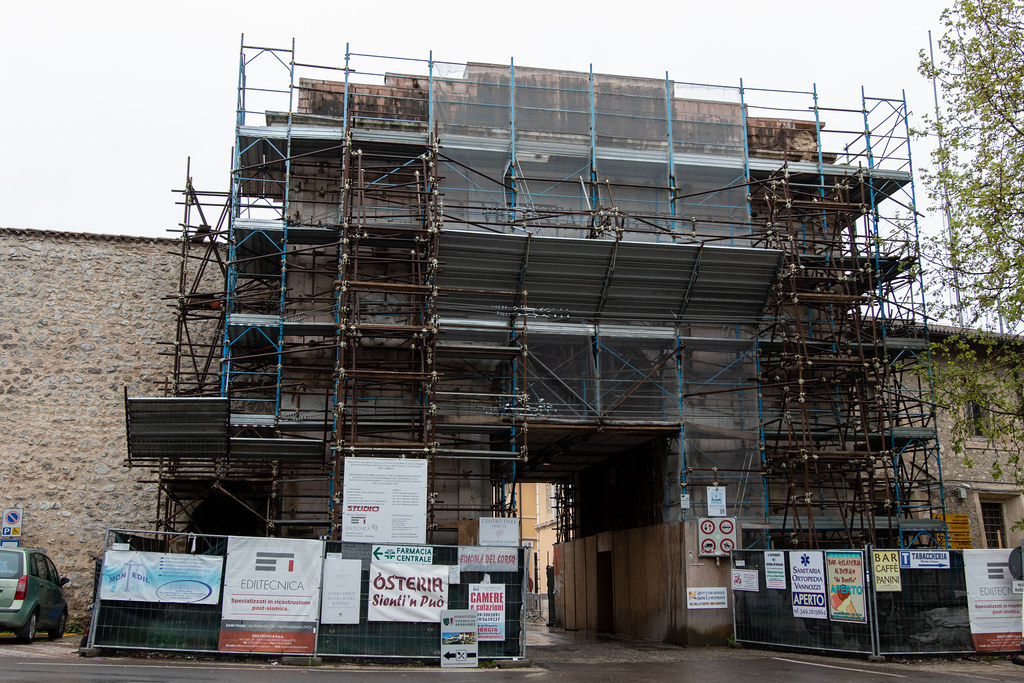
Although we see earthquake-damaged buildings all over the place like this,
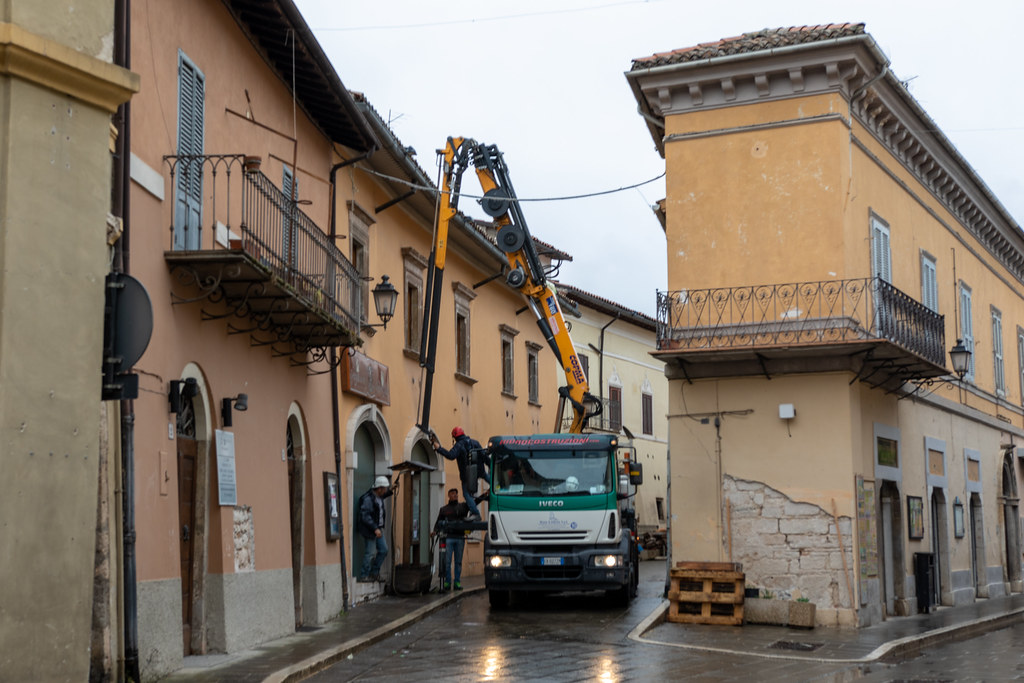

The village itself was crowded with tourists, especially the shops selling local specialties such as salami and black truffles.
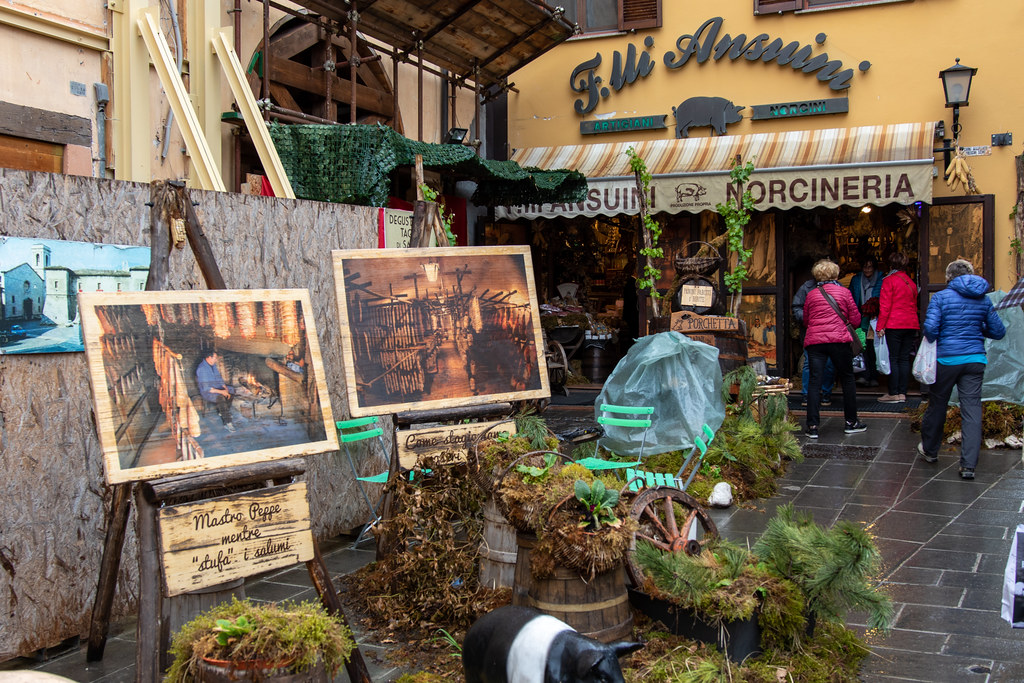


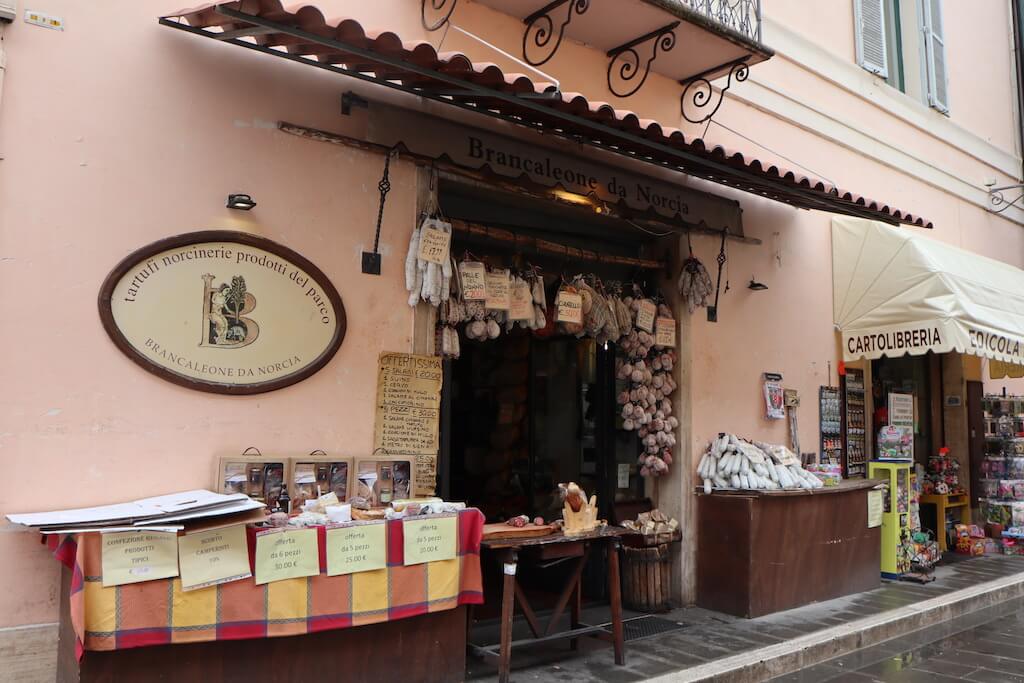
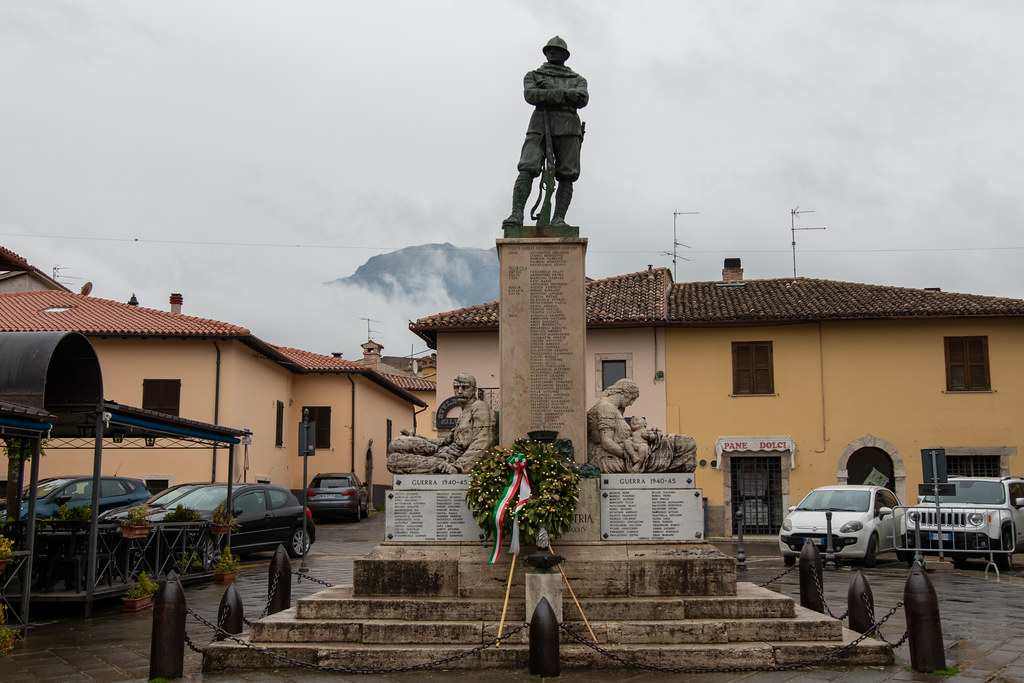
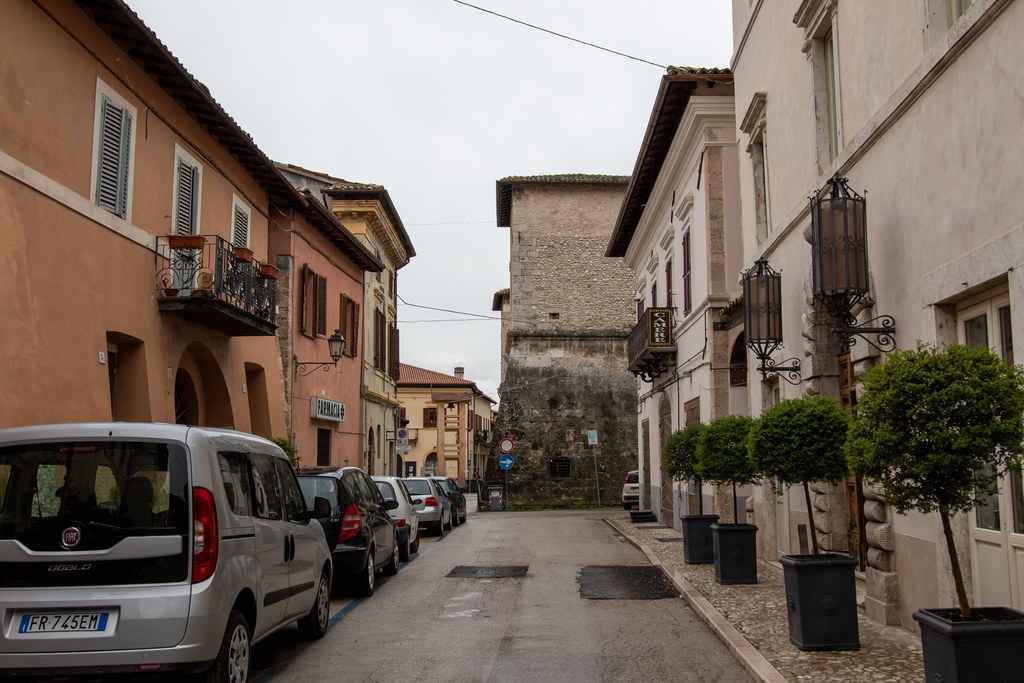
The weather was not good that day, and it was still early in the afternoon, so the cafes and restaurants were a bit quiet. And as I mentioned earlier, there were many fine restaurants, including Michelin-starred ones, as well as casual restaurants in the village. Accommodations also seem to be excellent.
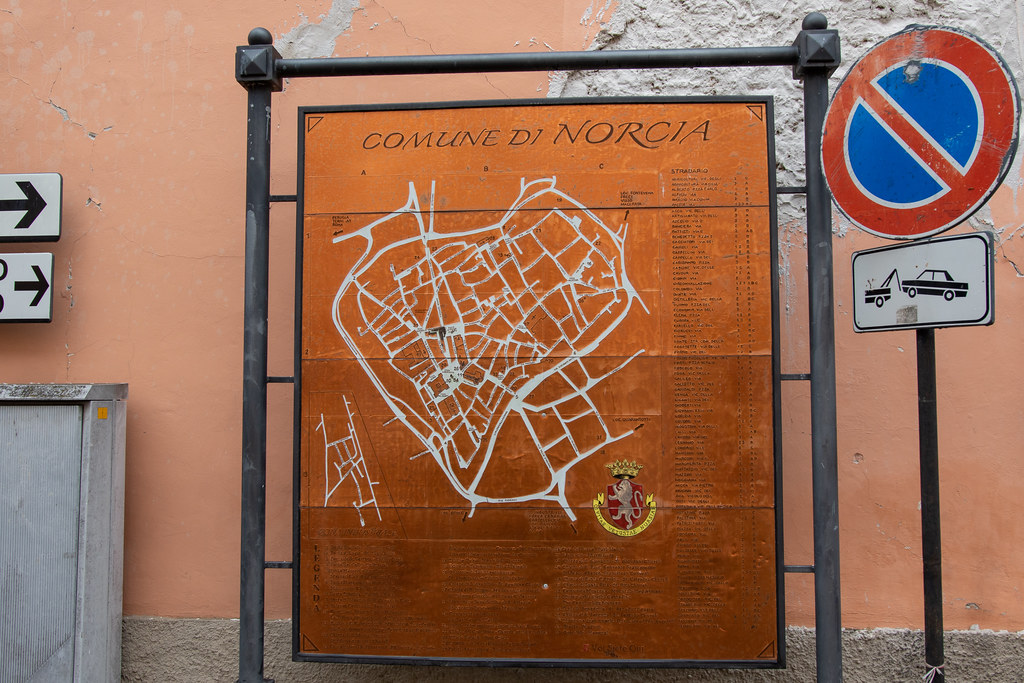

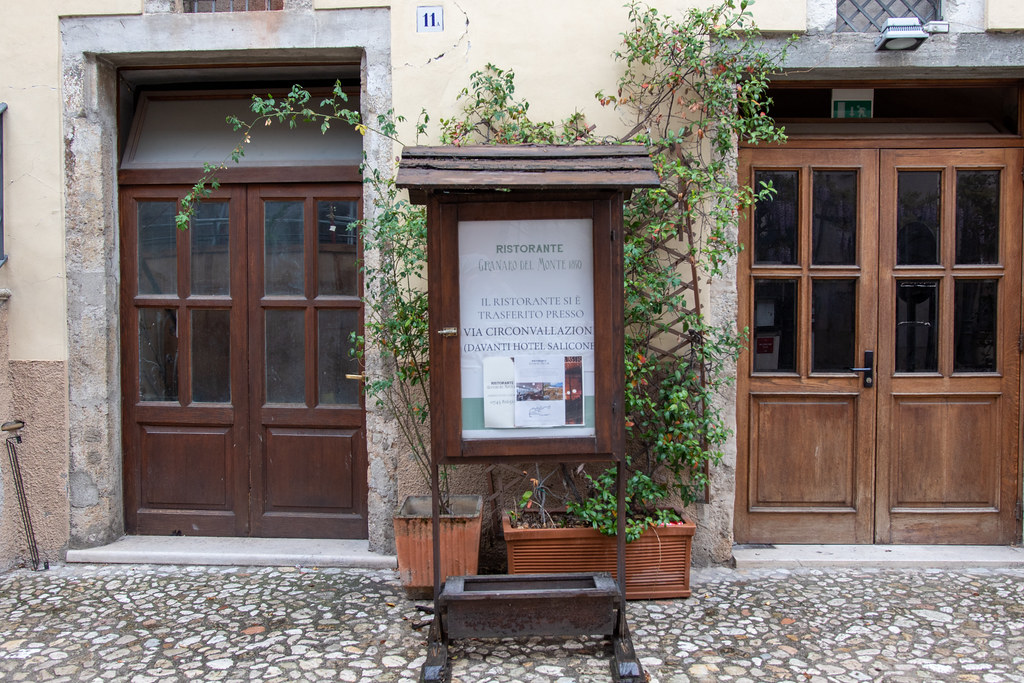

Outside of the wall, there was a wooden prefabricated shopping street. Many of the original stores inside the city walls were damaged by the earthquake, so I think the shopping district was built outside the walls as a temporary measure.
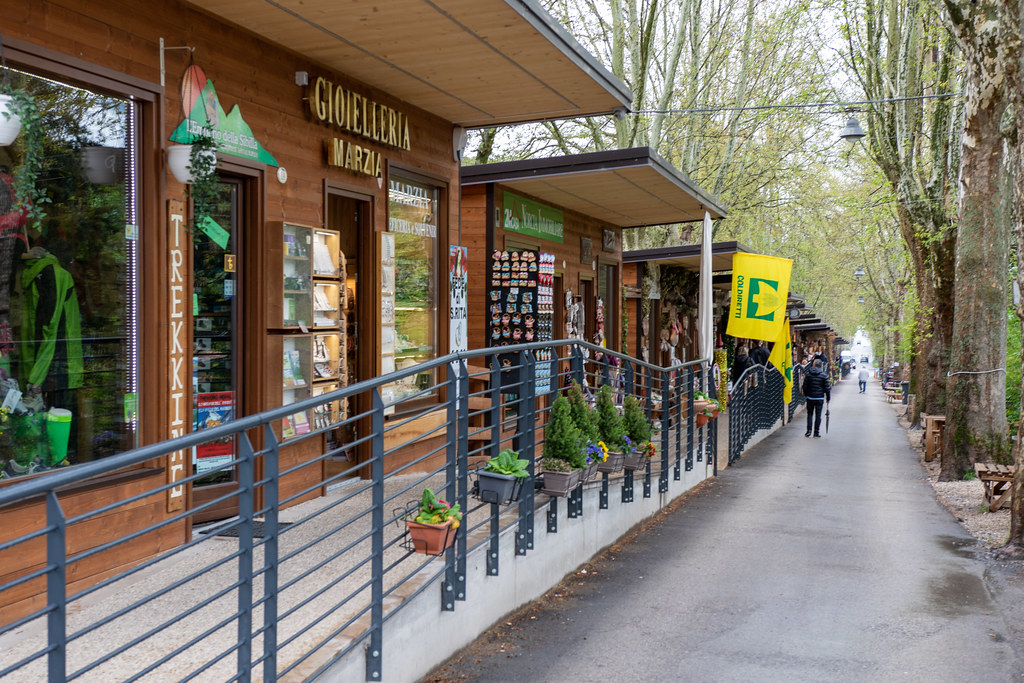
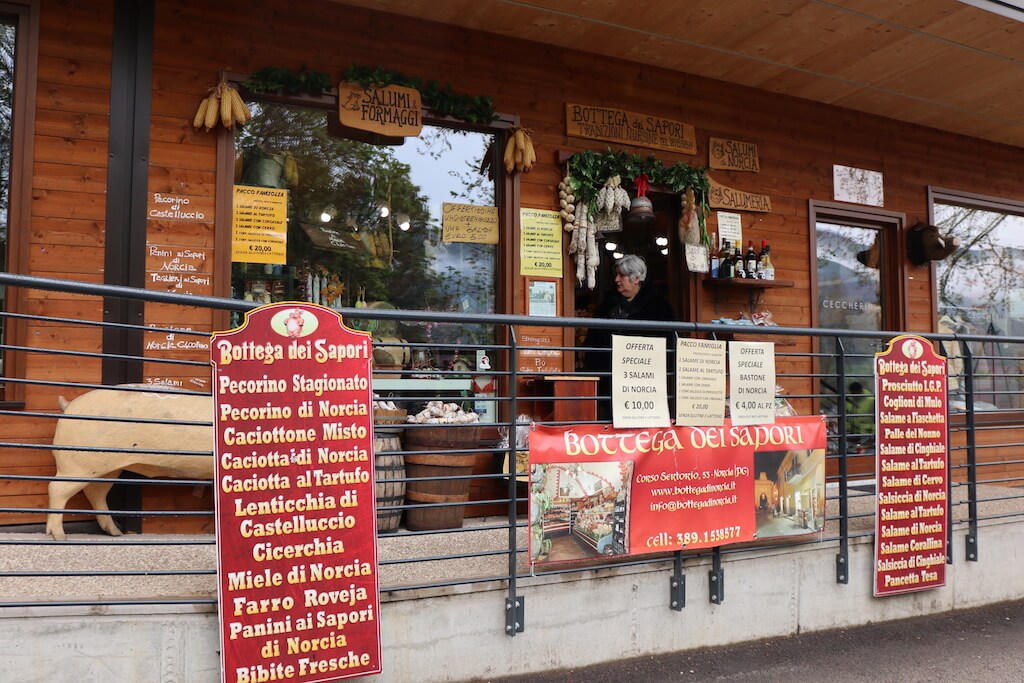

Here we bought some salami and potato chips with black truffle flavor, which may or may not be a specialty of the village. We enjoyed them with a bottle of wine, that we had bought when we were in Tuscany, two days later at our apartment in Rome. The oiliness, the depth of flavor and the saltiness, both strong and mild, were excellent and impressive.
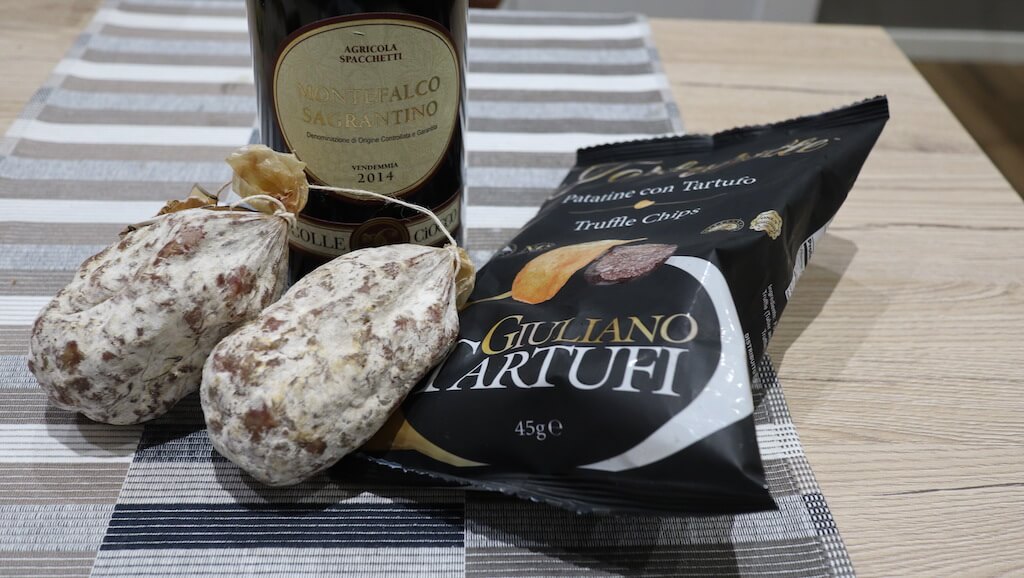
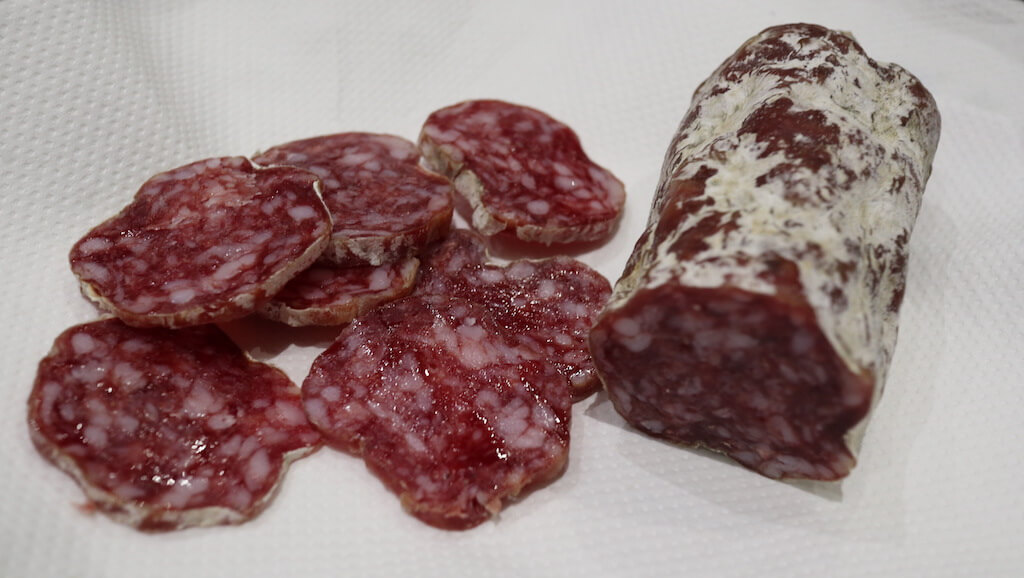
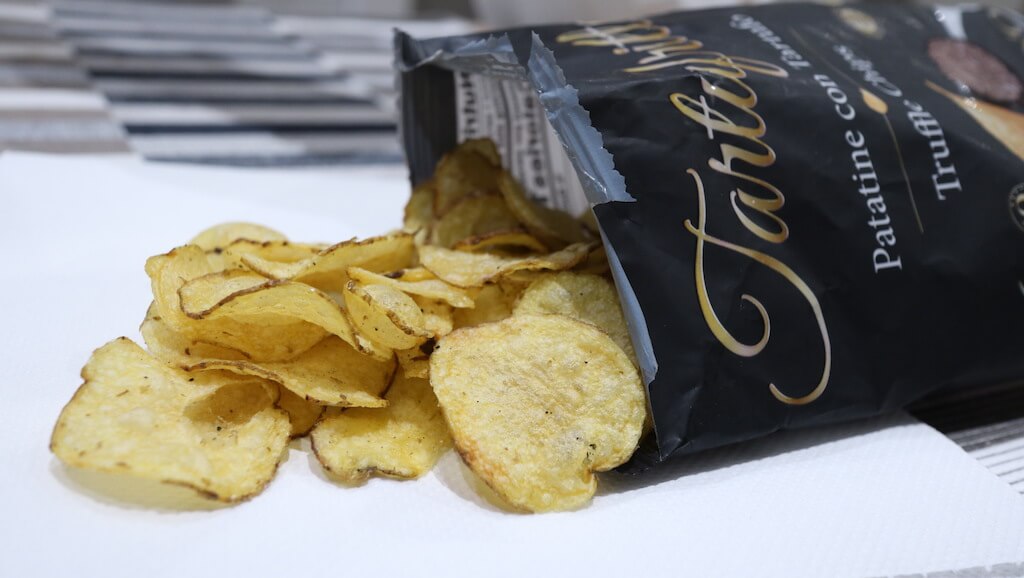
The church of Saint Benedetto was in a very sad state, but I would love to visit it when it is rebuilt. It’s a gourmet town and I would definitely like to stay there. There are still many beautiful villages in the area that I was not able to visit this trip, so there is still a lot to see for me.
